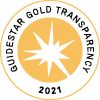Find the right people. Put in the effort.
On this page:
-Why are healthy relationships important?
-Which relationships should I be focused on?
-How can I form/develop healthy relationships?
Why are Healthy Relationships so Important?
Whether we realize it or not, our relationships have a huge impact on our lives. The people that we communicate with (or don’t communicate with) on a regular basis influence our behaviors in ways that we may not always recognize. For example, the CDC reports that youth in safe, healthy relationships are more likely to do well in school and less likely to engage in risk behaviors (drug use, underage drinking, etc.) The Office of Population Affairs promotes positive friendships because they often reinforce healthy behaviors such as conflict resolution and resisting peer pressure. For the sake of everyone’s mental, emotional and physical health, it’s important for us to maintain healthy relationships.
Which relationships do I need to maintain?
The short answer is that all relationships deserve to be healthy. However, there are three types of relationships that tend to have the largest impact on our day-to-day behaviors and our future decisions.
Romantic relationships are impactful to all of us. No matter our age, stage of life, or relationship status, romance and the longing for connection play a large role in our lives. For adolescents, healthy romantic relationships may increase the development of social and emotional skills. Adults, especially parents, have the responsibility of maintaining healthy romantic relationships so that they may set a good example for their children or others who see them as role models.
Friendships are often neglected but are actually just as important as romantic relationships. As adolescents struggle with self-esteem and independence, the support of their friends can make or break their confidence and communication skills. “[Peers] can help each other develop new skills, or stimulate interest in books, music or extracurricular activities” (American Academy of Child and Adolescent Psychiatry, 2018). Even in adulthood, friendships can provide a sense of belonging, and reduce feelings of anxiety and stress by helping you to deal with difficult situations.
Caregiver/Child relationships are perhaps the most important and impactful relationships that we experience. In one study on Parent-Child Connectedness, it was found that most adolescents value their parents’ opinion when making serious life decisions. Healthy communication and close family relationships have been found to decrease health risks in adolescents such as substance abuse and violent behavior (Act for Youth, 2018). Children, teens and young adults need to feel loved and supported. Sometimes, a parent or caregiver is the only person who can offer that love and support.
How can I form and maintain healthy relationships?
Tips for Strengthening Your Most Valued Relationships
Communicate openly– Honesty, trust, and mutual respect are built on communication. This may mean fighting fair, expressing your love verbally, or asking difficult questions. Take the time to talk to the people that you’re in any kind of relationship with, and remember that they can’t read your mind.
Support each other- In all types of relationships, ongoing support is vital. This may look different for a parent-child relationship than for a friendship. Still, being someone that your friends, children, and partner can rely on will strengthen your connection with those people.
Do the work- Forming and maintaining healthy relationships is not an easy task. It is one that requires you and others to put in the work consistently, not just one time. Healthy relationships don’t happen overnight, and they require constant effort on all sides.
Humans are hardwired for connection. In order to survive, we need real relationships that last. Forming and maintaining these healthy relationships may seem like a lot of work, but the reward is worth the work that we put in.
1″10 Tips For Healthy Realtionships | Healthy Relationships | Amherst College”. Amherst.Edu, 2021, https://www.amherst.edu/campuslife/health-safety-wellness/counseling/self_care/healthy_relationships/10_tips_for_health_realtionships. Accessed 16 Aug 2021. Ackard, Diann M. et al. “Parent–Child Connectedness And Behavioral And Emotional Health Among Adolescents”. American Journal Of Preventive Medicine, vol 30, no. 1, 2006, pp. 59-66. Elsevier BV, doi:10.1016/j.amepre.2005.09.013. Accessed 16 Aug 2021.
2“Youth Statistics: Family Structure And Relationships”. Actforyouth.Net, 2021, http://actforyouth.net/adolescence/demographics/family.cfm. Accessed 16 Aug 2021.
3“Healthy Relationships In Adolescence | HHS Office Of Population Affairs”. Opa.Hhs.Gov, 2021, https://opa.hhs.gov/adolescent-health/healthy-relationships-adolescence. Accessed 16 Aug 2021.










